Tulucay Farms is a premier Hunter/Jumper barn located in beautiful Napa, California. Its owners, Brian and Missy Gruber, uprooted from their established show barn (and barn family) in Maryland to take over the west coast farm when Missy’s Aunt retired. Tulucay Farms has been in Missy’s family since its creation in the early 1980s, and that’s just one small part of how “family” is central to everything about the place.
EQuine AMerica: Tulucay Farms is very family-oriented. You have three families at the farm: your barn family, you two as a family, and your extended family living on the property. Tell us about them.
Brian: When you’re all together and it’s like a family, and you’re all rooting for each other—it’s amazing. It’s a bit out of the ordinary in California I guess, but we’re building that atmosphere here at Tulucay. We’ve had people that have been living in California for 30 years but grew up on the East Coast say, “This barn has such an East Coast feel to it,” and, “This place has such a ‘how I grew up riding’ kind of feel.” I don’t know if it’s because of the private lessons… It’s more one-on-one. We’re very hands-on.
We come together as a group at the horse shows as well; it’s not something we necessarily intend to do really. Some of the Jumper people will stay to watch the Hunter people go at 5:30 at night. It becomes a team thing.
The other trainers will often comment, “Does your whole barn always come to the in gate to support each other?” I say it very politely because I don’t want to be like, “Well, of course.” But I say, “Yeah, it tends to happen.” And they’ll say, “But didn’t that lady show jumpers at 10:00 in the morning? And she’s here for the classic, for the Hunters now?” And I say, “Well yeah, she got cleaned up and came back to support the others.”
Missy: We all go the in gate and support each other. If somebody’s riding, we all stand there and clap for each other and are there for each other no matter which way it goes. It’s a lot more fun to celebrate with a team when something goes right and to be supportive when it goes wrong.
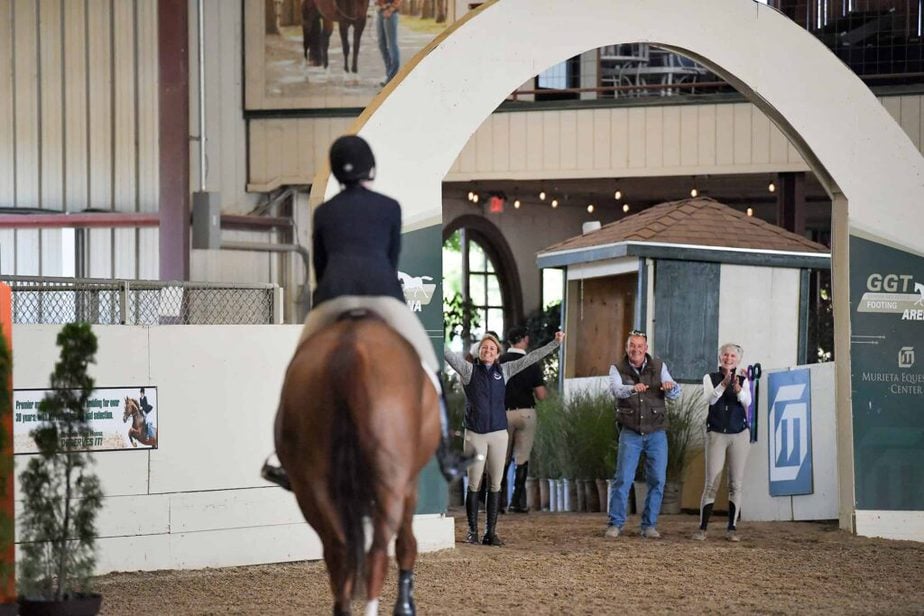
Everybody’s sort of learning from each other’s mistakes, too. Everybody comes down and watches other rider’s lessons at home. Everybody learns from each other.
I promote that because I think it helps them to watch other people, no matter what the level. But the stuff at the horse shows, that just happens.
I think we love what we do, and we love people that love their horses and love to ride. But when you do that—when you bring that kind of emotion and passion to it—you also have to have something that balances it out or everybody tries too hard. So, when we have the team around, we laugh with each other, and we laugh at ourselves. It just makes the whole day easier.
COVID-19 really brought our barn family together. We were very fortunate to be able to stay open most of last year when a lot of barns couldn’t. We’re small by design. We were very careful about it. We made everybody wear masks, socially distanced, and used scheduling to separate people. As things lightened up, so many of our clients told us that Tulucay was the only place where they could just sort of forget that COVID-19 was a thing. They could come to the barn and actually talk to another human being face-to-face. It was everybody’s safe space in a way. I think that really brought us all together.
We had moments where people had bad days and would come out and just need to cry or get mad. And then everybody takes a deep breath, and we’d find something funny to laugh at—usually Brian. But I think that being part of a barn family helps. People say the horses are therapy, but I think it’s also that you have all these people supporting you. You know you have that team, and that’s what helps you get through the hard stuff.
Missy, can you tell us about your family and the origins of the farm?
Sure. My grandparents bought this piece of land in the ‘80s. I was still just a star in the sky, but around 1985 the buildings went up. My aunt was in the horse business, and it was for her to run. She has since retired. But this is where I learned how to ride and would come back every summer, Christmas, and Easter.
My link to the family property has always been really strong. We’ve always talked about this farm staying in the family, even in conversations with my grandparents. They worked very hard to buy it and put their own love and passion into it. They always wanted to leave it to the next generation.
It sounds silly to say it at this point in my life, but when I was a little girl, this is exactly what I imagined my life would be. I went to school on the East Coast, rode on the East Coast, and trained on the East Coast—I love the East Coast, but, this barn has always been my home. It’s a treat to come back, and I feel like I’m carrying on something that generations started before me. That’s fun, too. With Brian. I couldn’t do it without Brian. It wouldn’t be fun.
It wasn’t easy to leave the barn family and home that we had made in Maryland, but he jumped right in and restarted here, and his personality is really what creates the atmosphere at Tulucay, without a doubt. He’s rolling his eyes and blushing, but that’s the truth.
That’s a great segue to talk about how you guys take care of each other. It sounds like, Brian, you’re the teddy bear of the group?
It depends. We play good-cop/bad-cop better than anybody, but in that way where we’re there for each other. Just like our barn family members. We have good days and bad days, weak parts and strong parts, and we complement each other.
There are certain departments that are Missy’s and certain departments that are mine. Sometimes they overlap, but not often. When we’re at the barn together, we may even be in the same ring, but we’re working. It’s not until we actually get home and get on our veranda here at the house away from the barn (which is attached, but not client accessible) that we compare notes about horses and lessons… things like that.
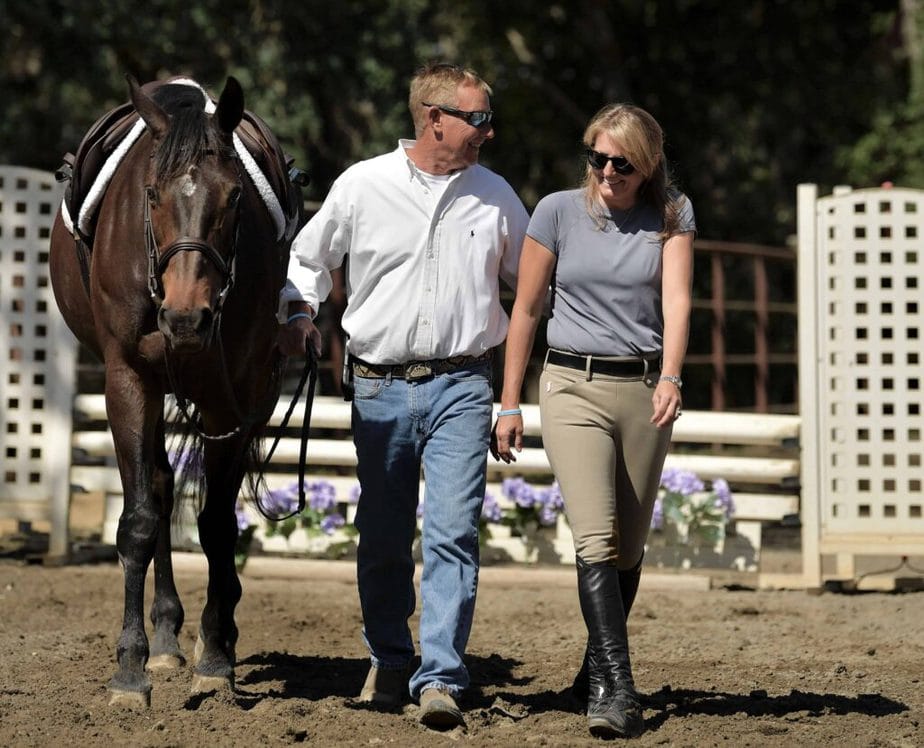
Photo Credit Alden Corrigan Media
We come home from the barn, Brian will start dinner, and Taylor Manderscheid (our Barn Manager) and I are usually making sure we have everything written down from the day. We all eat dinner together every night, too. We get the whole day out, have dinner together, and then start fresh the next day.
I think that’s the barn life. Being a horse trainer is a lifestyle choice. You can make a laundry list of complaints about it, like long hours, but that’s the job. We share the burdens of it together, and we balance each other. If he’s upset about something, I can say, “Okay, calm down,” and the same thing vice versa. We’re each other’s sounding board, but we have to make that time for us. We still have to have a healthy balance.
Missy, your extended family lives on the property, too, right?
Yes, my family (Brian’s in-laws) live on the property with us. It’s sort of like a compound. We have our own space and our own houses. What makes it nice is that we can have birthdays together. We might meet each other for a cup of coffee, and my mom will come over and watch the lessons. My niece who’s only three comes over and feeds the horses carrots. All of that stuff is such a treat, and we have their support, also. That makes it fun, too. We come home, and we tell them about what’s going on. Even though they live next door and see it, they’re not really involved in the horse business.
They were career professionals their whole lives. So, when this happened, it was more like, “Would you guys take over to keep the property in the family?” But it’s also a business, so there’s that pressure that came with it. They’re fantastic. They let us just run it the way it needs to be run.
My mom is an amazing gardener. She’s in charge of the plants. [Missy’s mother actually delivered some butternut squash during our conversation.] My dad was an engineer all of his life. He worked for Bechtel. But he has a workshop now, and he builds things. He just recently surprised us by making signs for all the stalls. That part is so fun.
Yeah, while we were at Rancho Murrieta (Sacramento), he came up with a design and sent us pictures. We started approving and disapproving them, and Missy had a specific thing she wanted with a little piece of bulletin board on each one. When we got home, all these signs were beautifully crafted on every stall in the main barn, the tack room, and the feed room. Personal touches like that are special to us and our clients.
Does your aunt still live on the property?
She is retired and on a beach somewhere, which is great. It’s what she always wanted to do. She was the first person that put me on a horse, and I will always be grateful for that.
She designed the barn. She studied in Europe for a while. This barn is so well set up for big Warmbloods. Show horses take a lot of time, care, and attention, and it’s perfect for us. There’s a lot of room for us to groom, the wash stalls are beautiful, and it’s very safe. The paddocks are big. It was pretty much set up and ready for us. It was just small things that we needed to do to make it work for us and make it our own.
Having our really nice barn seems to help our riders develop their identities—it gives them a little bit of an idea as to who they are as riders, and they want to do their best to represent us. If the barn is nice and organized, then they kind of step up and ride nice and organized.
And we promote the kids taking ownership of what they do. If they make a mess, they clean it up. If there’s a bridle hanging out, even if it’s not theirs, they clean it and put it away. Everybody enjoys returning the favor that way, and that makes that team atmosphere flourish. That kind of promotes that “we’re there for each other” sort of vibe.
It sounds like, by creating this environment, you’re giving them something to be proud of and they want to continue doing what’s right to maintain that pride.
Yes. We’re trying. It’s great to see the kids step up, pick up, and start taking on the details of caring for a horse—not just riding a horse. You watch them grow and change. One of our riders is graduating from high school tomorrow. We’re so excited because we get to go to her graduation.
Four years ago, she walked into the barn, and she was kind of shy. Now, she helps us with feeding and holds horses for the vet and the farrier. She stands in the ring with me when I teach the kids, and when we come back into the barn, she shows them how to put the horses away with me. It makes you feel like you’ve taught somebody who’s teaching somebody. It’s not just how to ride—it’s how to be a good person, too.
Missy and I are grateful to have the horses, horse training, and barn “team” alongside us all our lives. We keep the family atmosphere going not only because it is what we know, but because we enjoy creating a place where people can connect with their animals and each other.
As an equestrian media outlet focused entirely on American horse sport, EQuine AMerica showcases the USA’s equestrian talent (both two-legged and four) in the disciplines of para dressage, dressage, hunters, jumpers, and eventing. We support and promote our nation’s fantastic equine events, products, services, artists, authors, science/tech, philanthropy, and nonprofits through our online magazine and social media platforms. Our mission is to offer you interesting/inspiring short and long-form content in a format that’s beautiful, readable, and relatable.



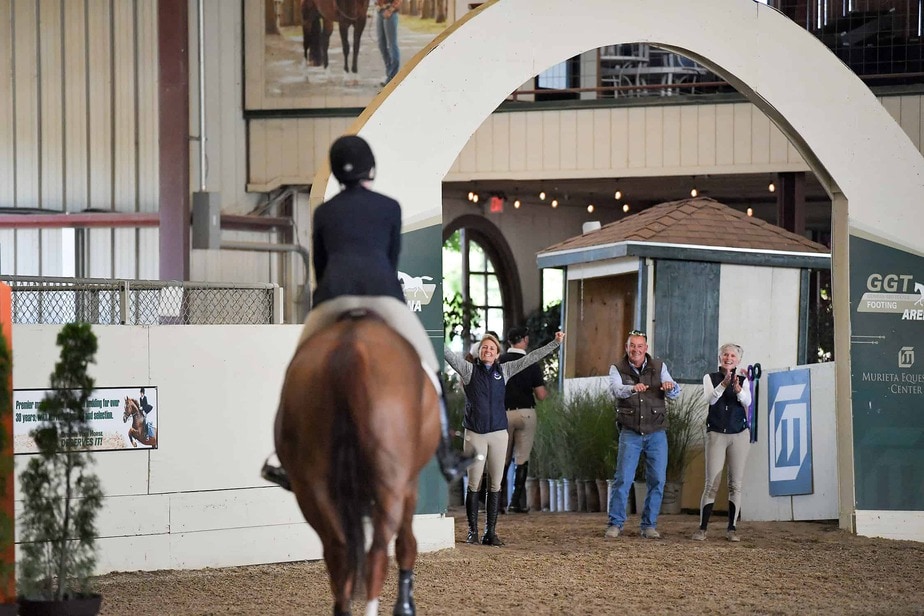
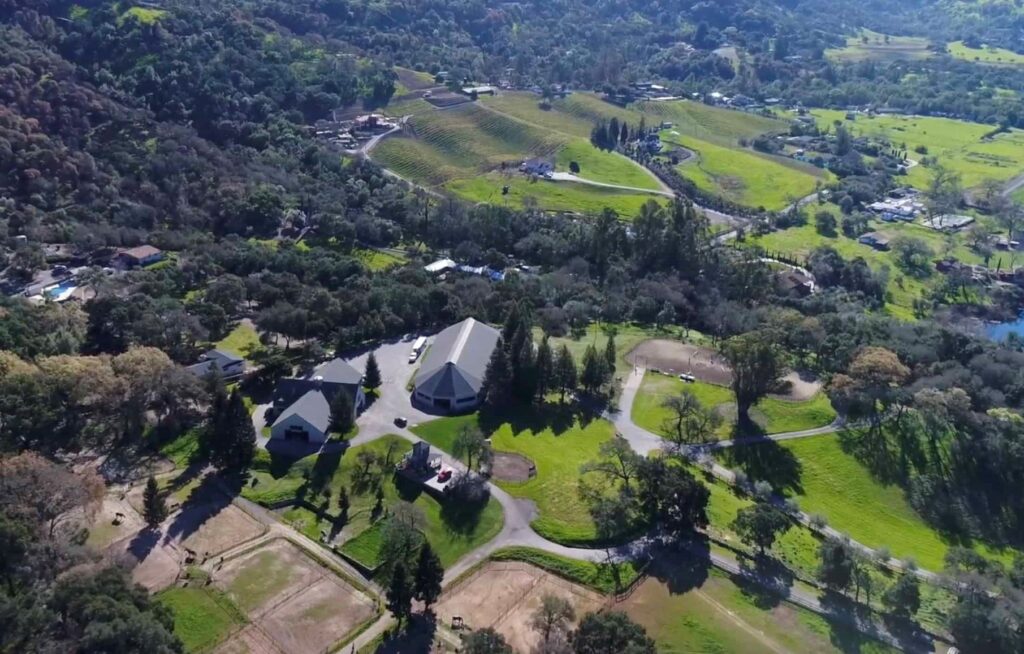
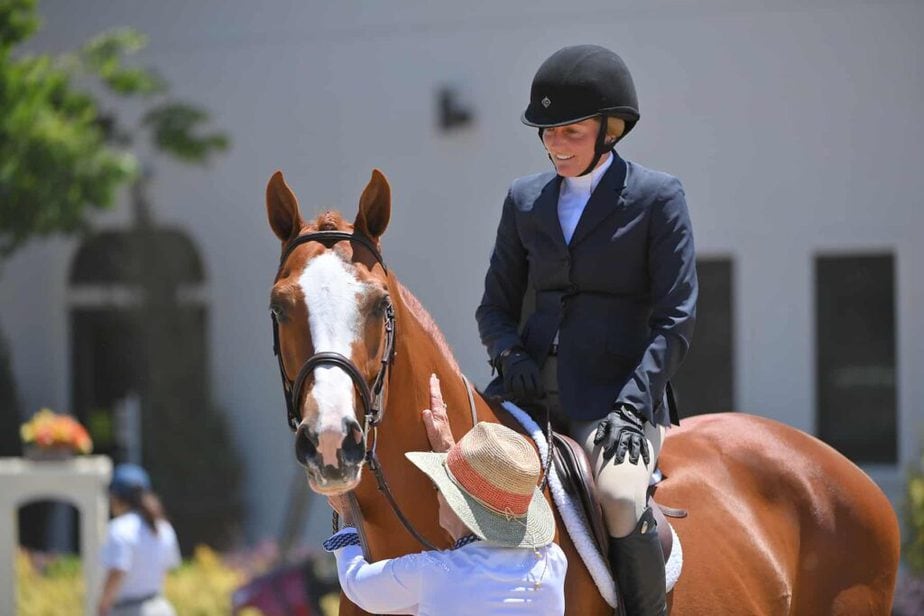
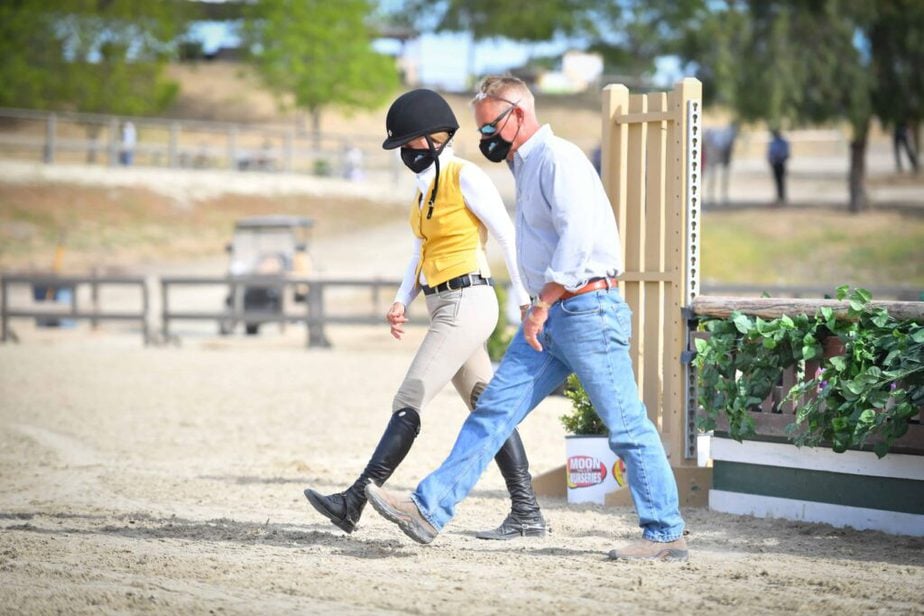
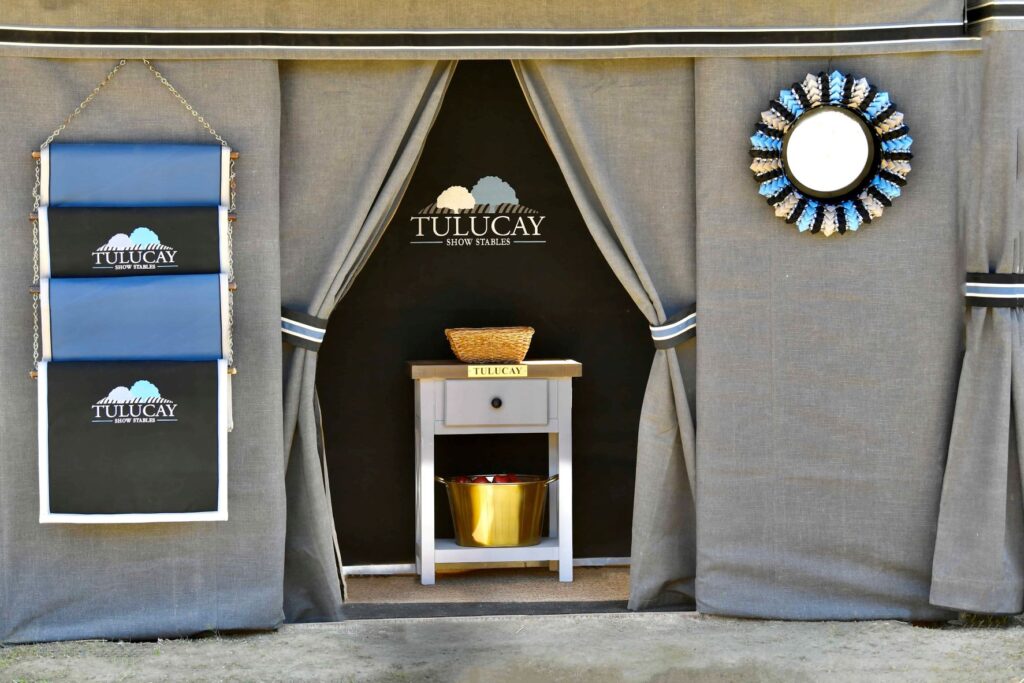
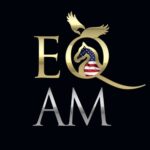
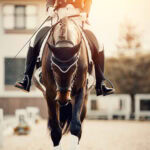
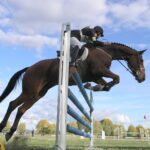
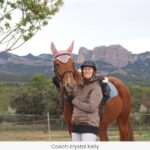
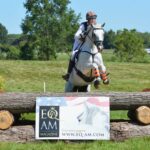
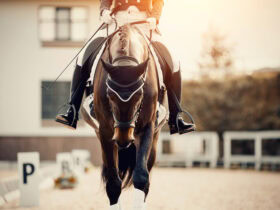
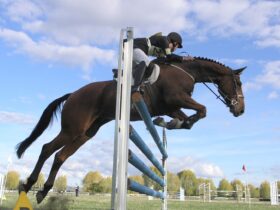
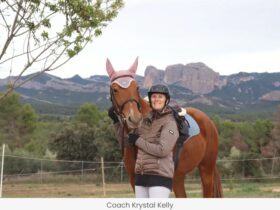
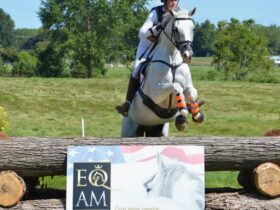
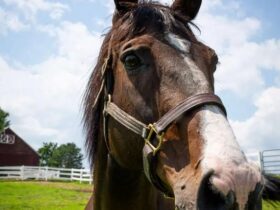
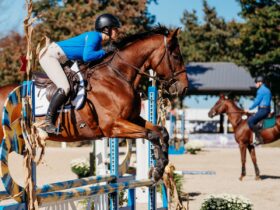
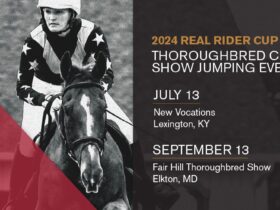
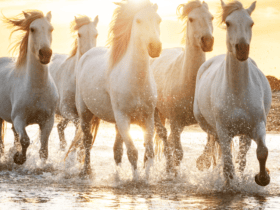
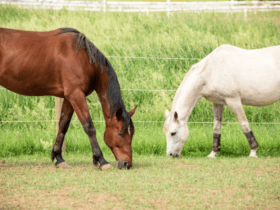
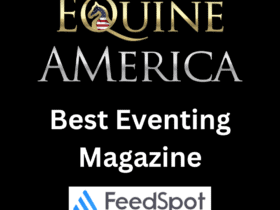
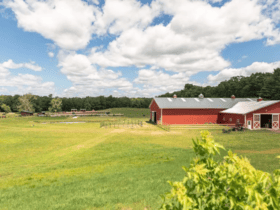


SOCIAL